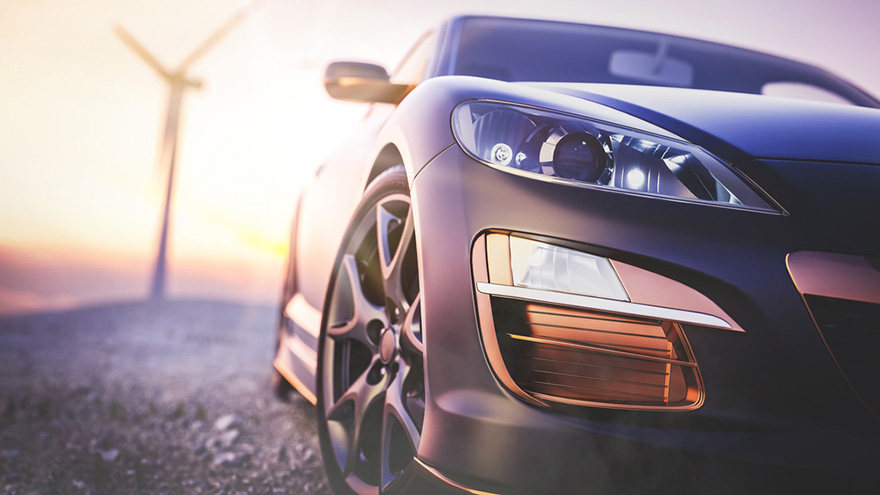President Trump followed through this week by signing H.J. Res. 111, which nullifies the Consumer Financial Protection Bureau's rule prohibiting the use of a pre-dispute arbitration agreement to prevent a consumer from filing or participating in certain class action suits.
The final step in the process of canceling the rule that received sizable support in the House but needed Vice President Pence’s action to break a tie in the Senate drew one more round of cheers of industry organizations and supporters.
“The CFPB’s rule was never about protecting consumers; rather, it was about protecting trial lawyers and their wallets,” Consumer Bankers Association president and chief executive officer Richard Hunt said.
“The bureau’s own study backs that up and proves trial lawyers would have been the real winners had this rule gone into effect,” Hunt continued.
“I would like to thank the administration and those in Congress who worked to ensure consumers have the necessary tools to receive relief without going through costly, drawn-out class action proceedings,” Hunt went on to say.
Also applauding the development was Jason Oxman, CEO of Electronic Transactions Association (ETA), which represents more than 500 companies worldwide involved in electronic transaction processing products and services.
“Arbitration is a simpler, flexible, faster and a more confidential process than turning to the courts to settle issues between consumers and financial companies,” Oxman said.
“As the CFPB noted in their own study, and as Treasury confirmed it its report, the majority of consumers who filed arbitration disputes did far better financially than those filed in class-action,” he continued.
Despite a last-ditch plea from CFPB director Richard Cordray, Trump used his power of the pen to nullify the rule the bureau finalized back in July.
“In signing this resolution, the president signed away consumers’ right to their day in court,” Cordray said in a message sent to SubPrime Auto Finance News. “This action tips the scales of justice in favor of Wall Street banks less than ten years after they caused the financial crisis.
“By blocking our arbitration rule, this action makes it nearly impossible for ordinary people to stand up for themselves against corporate giants like Wells Fargo and Equifax,” he continued.
“Now more than ever, it is critical that the Consumer Bureau remains a strong check on financial companies. Consumers who believe they have been wronged should contact us with their complaints,” Cordray went on to say.
One of the architects of the CFPB — Sen. Elizabeth Warren of Massachusetts — vehemently defended the rule and the bureau’s efforts when the Senate debated the Congressional Review Act resolution that eventually halted this regulation.
“Make no mistake: Anyone who votes to reverse this rule is saying loud and clear that they side with banks over their constituents — because bank lobbyists are the only people asking Congress to reverse the rule. Every other organization — all the ones that represent actual human beings, not banks — want the rule to be saved,” Warren said during a speech on the chamber floor.
“And even if there are instances in which arbitration is a better option for consumers than a class action lawsuit, the CFPB rule doesn't prevent consumers from choosing arbitration. The rule simply says that consumers should also have the freedom to go to court if they prefer it,” Warren added later.
“I’ll tell you one thing: when it comes to what’s right for consumers, I listen to servicemembers, veterans, seniors, consumers, and small businesses — not bank lobbyists. When a bunch of bank lobbyists tell you they know what's best for consumers, hang onto your wallets,” she went on to say.
The Consumer Financial Protection Bureau recently offered its assessment regarding a potential information path auto finance company collectors and recovery professionals might use during the skip-tracing process to mitigate delinquencies and potential charge-offs.
The CFPB outlined seven principles for when consumers authorize third-party companies to access their financial data to provide certain financial products and services. Bureau officials insisted these principles are intended to help foster the development of innovative financial products and services, increase competition in financial markets and empower consumers to take greater control of their financial lives.
The principles discussed by the bureau included:
—Access
—Data scope and usability
—Control and informed consent
—Authorizing payments
—Security
—Access transparency
—Accuracy
—Ability to dispute and resolve unauthorized access
—Efficient and effective accountability mechanisms
The CFPB acknowledged many companies, including “fintech” firms, banks and other financial institutions, get authorization from consumers to access their account data that reside in separate organizations to provide a variety of products and services. These include fraud screening and identity verification, personal financial management, and bill payment.
Bureau officials concede such products and services could help consumers make smarter spending, savings and investment decisions and live their lives more efficiently and effectively. The bureau said it has been studying consumer-authorized data access and issued a Request for Information in 2016 to gather feedback from wide range of stakeholders.
The CFPB noted that it received feedback from large and small banks and credit unions, their trade associations, aggregators, “fintech” firms, consumer advocates and individual consumers.
“The Consumer Bureau recognizes that while consumer-authorized data sharing promises great benefits to consumers, there are many consumer protection challenges to be considered as these technologies continue to develop,” officials said. “The Consumer Bureau advocates strongly for consumer control of the consumer’s data and transparency.
“At the same time, the Consumer Bureau emphasizes the importance of data security and privacy. Based on the Consumer Bureau’s 2016 Request for Information, as well as other stakeholder outreach, the Consumer Bureau understands that some key industry stakeholders are working on improvements to consumer-authorized data access. These improvements relate to the agreements, systems and standards involved in consumer-authorized data access,” they continued.
The CFPB insisted that it will continue to closely monitor developments in this market and will also continue to assess how these principles may best be realized.
The bureau pointed out these principles do not establish binding requirements or obligations relevant to the agency’s exercise of its rulemaking, supervisory or enforcement authority. In addition, officials added that they are not intended to alter, interpret or otherwise provide guidance on existing statutes and regulations that apply in this market.
Lastly, although the bureau emphasized that it stands ready to facilitate constructive efforts or to take other appropriate action to protect consumers, the principles are not intended as a statement of the bureau’s future enforcement or supervisory priorities.
“These principles express our vision for realizing an innovative market that gives consumers protection and value,” CFPB director Richard Cordray said.
The complete report is available here.
While the agency director expressed his disappointment, dealerships and auto finance companies can breathe a big sigh of relief; Congress has stopped the Consumer Financial Protection Bureau’s arbitration rule.
With Vice President Pence casting the deciding vote late on Tuesday night, a Congressional Review Act resolution gained approval in the evenly divided U.S. Senate, overturning the CFPB arbitration rule prohibiting the use of class action waivers in arbitration clauses.
The U.S. House of Representatives voted to abolish the CFPB’s rule in July. The Congressional Review Act states that once the resolution is passed by both chambers of Congress and signed by the president, the rule under debate is repealed and substantially similar rules can only be reissued with specific legislative authorization.
Industry cheers came from the industry not only near Capitol Hill, but also by those leaders gathered for the Fall BHPH Conference hosted by the National Alliance of Buy-Here, Pay-Here Dealers — especially from the National Independent Automobile Dealers Association.
NIADA chief executive officer Steve Jordan emphasized how the action put the interests of consumers ahead of class action lawyers
”We are pleased the Senate recognized the fallacy behind the CFPB’s ill-conceived arbitration rule and took action to defend the interests of the very consumers the bureau is supposed to protect,” Jordan said in a statement shared first with SubPrime Auto Finance News. “This rule was nothing more than a boon to class action lawyers levied on the backs of America’s hard-working consumers.”
“Arbitration has proven to be a faster, less expensive and more effective means of resolving consumer disputes than class-action lawsuits,” Jordan continued. “And consumers who receive an award in arbitration almost always receive more than they would in a class-action lawsuit, a point proven by the CFPB's own research.”
Meanwhile, back inside the Beltway, CFPB director Richard Corday called the Senate development "a giant setback for every consumer in this country. Wall Street won and ordinary people lost."
In a message sent to SubPrime Auto Finance News, Cordray continued by saying, "This vote means the courtroom doors will remain closed for groups of people seeking justice and relief when they are wronged by a company. It preserves a two-tiered justice system where banks can have their day in court but deny their customers the same right. It robs consumers of their most effective legal tool against corporate wrongdoing.
"As a result, companies like Wells Fargo and Equifax remain free to break the law without fear of legal blowback from their customers. I urge President Trump to stand with consumers and veto this resolution," Cordray went on to say.
NIADA and its membership actively advocated against the rule — including at its recent National Policy Conference — encouraging the Congress to take the action voted on yesterday.
The association explained that the rule, which took effect Sept. 18, was meant to steer more consumer disputes into class-action litigation rather than arbitration, which benefits class-action lawyers at the expense of the consumers, especially those who are the most-credit challenged.
According to the study on which the CFPB said it based the rule, 87 percent class action cases provided no benefit to the consumers involved, and in the ones that did, the average payout was a mere $32. The trial attorneys, meanwhile, recouped millions of dollars in fees. Financial relief for consumers in arbitration cases averaged more than $5,000.
And arbitration is up to 12 times faster and is less expensive than litigation, according to the research.
The Senate resolution, which is identical to a resolution that passed the House of Representatives in July, now heads to the White House where President Trump has indicated he will sign it.
NIADA senior vice president of legal and government affairs Shaun Petersen, who along with Jordan are among the industry leaders set to speak during Used Car Week, praised Senate leadership for Tuesday night’s action.
“We applaud Senator (Mike) Crapo and Senator (Mitch) McConnell for their efforts to shepherd this resolution through the Senate chamber,” Petersen said. “Their leadership in getting this resolution passed ensures consumers will continue to reap the benefits of arbitration while preventing the inevitable increase in credit costs that would have come.”
And the organizations that primarily are associated with finance providers applaud the Senate actions, too.
“We’re pleased to see the Senate has chosen to side with consumers instead of trial attorneys when it comes to arbitration,” American Financial Services Association president and chief executive officer Chris Stinebert said in a statement sent to SubPrime Auto Finance News.
“Class action lawsuits take years to be heard, clog the courts, and result in comparatively small payouts for consumers,” Stinebert continued. “By contrast, disputes settled by arbitration result in quick decisions and pay-outs for consumers that average higher than class action settlements.”
The Consumer Bankers Association shared a similar reaction.
“The Senate acted to protect consumers with this vote,” CBA president and CEO Richard Hunt said. “Overturning the CFPB’s arbitration rule ensures consumers retain the tools they need to receive relief without going through long, drawn-out, costly court proceedings — where no one benefits except trial lawyers. The CFPB’s own study even verifies arbitration is more effective when it comes to helping consumers.
“This rule was ill-conceived, based on an incomplete study and did not fulfill the Bureau’s goal of protecting consumers,” Hunt continued.
“We thank (Senate Banking Committee chairman Mike Crapo) for his work in the U.S. Senate as well as (House Financial Services chairman Jeb Hensarling) and Congressman (Keith) Rothfus for their efforts in the House of Representatives on this important consumer matter,” Hunt went on to say.
Like NIADA, CBA officials pointed out the bureau’s own study shows the average consumer receives $5,400 in cash relief when using arbitration and just $32 through a class action suit. The trial lawyers managing these cases, however, have received approximately $424 million, an average of more than $1 million per case.
Before the vote tally arrived late on Tuesday, five national organizations including AFSA and CBA along with a coalition of associations located throughout Texas filed a legal challenge on Sept. 29 to the CFPB’s arbitration rule.
The vote also came just ahead of the U.S. Treasury Department releasing a report on Monday that examined the CFPB’s arbitration rule. The Treasury report delves into the analysis CFPB used to prohibit mandatory arbitration clauses.
Treasury officials explained their report outlined important limitations to the data behind CFPB’s rule and explained that CFPB did not appropriately consider whether prohibiting arbitration clauses would advance consumer protection or serve the public interest.
The Treasury report also found that:
—The CFPB’s rule will impose extraordinary costs—generating more than 3,000 additional class action lawsuits over the next five years, imposing more than $500 million in additional legal defense fees, and transferring $330 million to plaintiffs’ lawyers.
—The CFPB’s data show that the vast majority of class action lawsuits deliver no relief to the class — and that consumers very rarely claim relief available to them.
—The CFPB did not show that its rule will achieve a necessary increase compliance with the federal consumer financial laws, despite the rule’s high costs
“The CFPB failed to consider less onerous alternatives to its ban on mandatory arbitration clauses across market sectors,” Treasury officials added about their report that’s available here.
Along with highlighting seven major findings and availability of the 2017 Non-Prime Automotive Financing Survey, the National Automotive Finance Association on Friday announced the next stage of its compliance training offerings.
Building off of the momentum generated by wide-spread leveraging of its Compliance Certification Program, the NAF Association launched what it’s calling Phase 2 for the Collector and Underwriter Compliance Certificate Programs. The NAF Association believes Phase 2 of these programs provides the necessary second educational step for collectors and underwriters to stay compliant in a difficult regulatory environment.
“We have found that many NAF Association member finance companies rely on the Compliance Certificate Program to provide necessary front line education for their staff,” said Jack Tracey, executive director of the National Automotive Finance Association.
"Phase 2 of the program equips company management with the opportunity to assess how collectors and underwriters have retained the compliance knowledge acquired in Phase I as well as providing education on current compliance issues,” Tracey continued.
The NAF Association — also one of the industry partners in the orchestration of Used Car Week that begins on Nov. 13 in Palm Springs, Calif. — highlighted both the collector and underwriting courses include coverage of the Equal Credit Opportunity Act (ECOA), the FTC Act and Unfair, Deceptive or Abusive Acts or Practices (UDAAP) and updates on other recent regulatory developments.
To learn more about the Collector and Underwriter Compliance Certificate Programs, go to www.nafassociation.com.
The growth in education offerings arrives as the non-prime automotive financing sector experienced the sixth consecutive year of market growth in 2016, according to the 2017 Non-Prime Automotive Financing Survey co-sponsored by the National Automotive Finance Association and American Financial Services Association.
Through the combined efforts of both associations, 54 companies participated in this year’s survey. This is the 21st year of the survey, started by the NAF Association, and the third year both trade associations have teamed up as co-sponsors. This effort is thought to be the most comprehensive survey of the non-prime auto financing sector.
Over the past few years, significant improvements to the survey have been made. For example, an easier data gathering approach through a web survey and a new reporting format give the report broader and more comprehensive coverage and provides information that cannot be found anywhere else. Contributing to the report are TransUnion, FactorTrust and Black Book, which are providing additional market insight by supplying data and analysis on nonprime auto financing.
Key findings from the survey include:
• Sixth consecutive year of market growth
• Competition increases, pace slows
• Banks led market share development with positive gain in 2016
• Several indicators showed a trend towards improved quality including higher credit scores for new and used, decreases in payment-to-income, decreases in average annual net charge-off and annualized repossession rate.
• Delinquency increases
• Operating expenses increase
• Profit reduction
Benchmark Consulting International administered the survey and provided the report analysis. Participating finance sources responded to survey questions covering topics such as originations, servicing and loss management. The results are illustrated in 129 graphs.
The survey report is distributed at no cost to finance company participants. Others may purchase a copy of the report for $500. To purchase, contact Diane Merino at the National Automotive Finance Association at (717) 676-1533 or [email protected].
Recovery Industry Services Co. (RISC) recently reached a new threshold of industry professionals completing its Certified Asset Recovery Specialist (CARS) and CARS-FC certification program.
Since it was launched in 2002, RISC tabulated that it has certified more than 10,000 individuals through its recovery agent training offering that is geared to meet the demands an ever-increasing focus on compliance.
RISC insisted that finance companies, forwarders and repossession professionals have sought standardized training programs and reporting to internal and third party auditors as well as the Consumer Financial Protection Bureau. The industry’s focus on compliance has created a surge in the number of companies that require CARS certification for all employees.
“Since June, more than 3,000 individuals have become CARS certified, with another 2,800 professionals currently preparing for the exam,” RISC founder Stamatis Ferarolis said.
“By the end of Q3, the nation’s five largest forwarding companies had certified all of their employees with CARS-FC, and more than 600 repossession companies have begun the process of having all their employees, not just their drivers, CARS trained,” Ferarolis continued.
“We are proud to be the only compliance certification program accepted nationwide by all lenders and forwarders,” he went on to say. “From the CARS certification program to vendor vetting to lot inspections, RISC has developed a comprehensive solution that ensures compliance by enforcing standards and teaching individuals how recover vehicles safely and handle sensitive data.”
This spring, at finance companies’ request, RISC created the Certified Asset Recovery Specialist-Forwarding Company (CARS-FC) training program as an extension of the industry standard CARS program. CARS-FC consists of a comprehensive set of applicable laws and regulations specific to forwarding company personnel to provide standardized training in all areas of compliance.
RISC recognized the following forwarding companies that committed and certified their personnel on the standard RISC CARS-FC program. RISC praised the commitment to the effort of standardized compliance of these firms, including:
• Primeritus Financial Services
• ALS/Resolvion
• American Recovery Service
• Del Mar Recovery Solutions
• MVTRAC
• Plate Locate
• Synergetic Communication
For questions about the RISC CARS or RISC CARS-FC program, or to sign up your company, contact RISC president and chief operating officer Holly Balogh at [email protected].
More evidence arrived this week indicating how some contract holders in your portfolio might be struggling to maintain their finances. This time, the research came from the Consumer Financial Protection Bureau.
The CFPB’s latest survey showed that more than 40 percent of U.S. adults struggle to make ends meet.
The National Financial Well-Being Survey was conducted by the CFPB in 2016. Using the 10 question scale developed by the CFPB, the bureau insisted its survey provides the first-ever national data directly measuring the financial well-being of U.S. consumers. Upon answering the 10 questions provided, consumers were given a score from 0 to 100.
In the survey, the average consumer score was 54.
Bureau officials explained the consumer sample used to conduct the survey was designed to be representative of U.S. households.
In addition to responding to the questions which are included in the financial well-being scale, people participating in the survey answered questions about a host of other measures. These measures include individual, household, and family characteristics; income and employment; savings and safety nets; financial experiences; and money behaviors, skills and attitudes.
Of the nationally representative sample of consumers surveyed, the CFPB reported 43 percent of consumers report struggling to pay bills.
Additionally, more than one third — 34 percent — of all consumers surveyed reported experiencing material hardships in the past year. For the survey, examples of material hardships include running out of food, not being able to afford a place to live, or lacking the money to seek medical treatment.
“These survey results are beginning to measure and examine the financial well-being of consumers,” CFPB director Richard Cordray said. “And the new tool we are releasing allows consumers to measure their own financial well-being and helps them take better control of their financial futures.”
The complete survey results can be viewed here.
There didn’t appear to be any obvious connection between a representative from the Consumer Financial Protection Bureau finishing his presentation during the National Policy Conference hosted by the National Independent Automobile Dealers Association and the hotel fire alarm activating as a question-and-answer session started.
While not trying to perpetuate some wild conspiracy theory, perhaps the underlying simmering of dealers in the room triggered the fire alarm on Tuesday morning.
The CFPB’s Damion English took the stage in front of what could have been considered a hostile audience — nearly 200 independent dealers and other automotive industry service providers who might have had varying assessments of how the bureau is impacting and possibly curtailing their businesses. English serves as the bureau’s auto finance program director and came to the agency after prior positions with Regional Acceptance, Capital One Auto Finance, American Honda Finance and as finance manager for the Victory Automotive Group.
English insisted the bureau is trying to gather all the information it can about how vehicle financing and deliveries happen, stressing that the CFPB wants input from dealers “because you know your business better than we do.”
Apparently making a favorable impression, an abbreviated Q&A segment started with one dealer telling the gathering that English was “the coolest person I’ve seen from the CFPB.” English welcomed the kind words by replying, “Thank you. I appreciate that. I’m going to tell my mom!”
Then moments later, the fire alarm began and the staff at the Dupont Circle Hotel asked us all to depart the facility. Outside, as the Washington, D.C. Fire Department arrived to confirm it was a false alarm, several dealers approached English and his two other CFPB colleagues for informal conversations. They all appeared civil but certainly intense.
Dealers are concerned about the CFPB’s new rule regarding arbitration. NIADA came out with multiple efforts to keep it from going into effect as it is on track to do so early next year.
NIADA pointed out that the CFPB’s study on arbitration found consumers receive on average more than $5,000 in arbitration hearings compared to roughly $32 in class-action litigation — if they receive anything at all.
“We are disappointed that the bureau has decided to adopt this ill-conceived rule,” NIADA chief executive officer Steve Jordan said when the bureau finalized the rule back in July. “(This) action shows the CFPB has decided to put the interests of class-action lawyers above those of the very consumers the bureau is mandated to protect.
“Arbitration has proven to be a faster, less expensive and more effective means of resolving consumer disputes than class-action lawsuits. And consumers who receive an award in arbitration almost always receive more than they would in a class-action lawsuit, a point proven by the CFPB’s own research,” Jordan continued.
“This rule will force small businesses to bear additional costs in defending class-action litigation, particularly meritless suits,” Jordan went on to say. “Those costs will ultimately be borne by consumers, and in the case of those who are credit-challenged, it could prove to be too much.”
The thought that dealers could face class-action lawsuits instead of settling matters via arbitration is leaving NIADA members uneasy to say the least. Later on Tuesday when the Small Business Administration made its conference presentation, multiple attendees fervently implored that the government entity designed to aid businesses such as independent dealers to intervene.
“Somebody in this town has got to help us,” one attendee said at the venue located less than a test-drive distance away from the White House and Capitol Hill.
The House approved resolution on July 25 leveraging authority provided under the Congressional Review Act (CRA) to stop the CFPB’s final rule prohibiting the use of class action waivers in arbitration clauses. Despite all House Democrats and one Republican voting against H.J. Res 111, the resolution cleared the chamber by a vote of 231-190.
Ever since, it’s been the Senate’s turn, but various online reports have indicated the margin for a similar resolution getting the necessary 51 votes for approval is slim — if it exists at all.
By now, dealers who went to our nation’s capital this week likely have returned to their stores to secure inventory, finalize deliveries and complete a long list of other chores necessary to remain a profitable enterprise. I applaud those dealers who participated in NIADA’s activities. Any fruits from the efforts might take some time to ripen, but at least they were planted.
Nick Zulovich is senior editor of SubPrime Auto Finance News and can be reached at [email protected].
Recent projects completed by the Competitive Enterprise Institute and the Cato Institute again delved into unsatisfactory assessments of the Consumer Financial Protection Bureau.
Coinciding with House Republicans chastising the CFPB over its investigation of Wells Fargo, a wide-sweeping survey conducted by the Cato Institute found that participants agree with an assertion previously made by the Consumer Bankers Association — that the bureau should be run by a commission rather than a single director.
According to a blog post by Emily Ekins, a research fellow and director of polling at the Cato Institute, Americans support changing the structure of the CFPB as nearly two-thirds (63 percent) say the CFPB should be led by a bipartisan commission of Democrats and Republicans, rather than by a single director. A third (33 percent) think a single director should run the federal agency instead.
Ekins noted that support is post-partisan with strong majorities of Democrats (67 percent) and Republicans (64 percent) in support of a bipartisan commission leading the agency.
Notably, Ekins went on to mention majorities of Americans support a bipartisan commission leading the CFPB regardless of whether one has a positive opinion (55 percent) or negative opinion (63 percent) of the agency.
Beyond how the CFPB leadership is structured, the Cato Institute 2017 Financial Regulation Survey showed that support for CFPB independence is more controversial than changing its structure.
Ekins shared that 54 percent of Americans say Congress should have limited oversight of the CFPB and should not set its budget, while 42 percent say Congress should closely oversee and set the budget for the agency.
Moreover, Ekins added that partisans disagree about the level of oversight needed for this federal agency. Reluctance for more Congressional oversight is perhaps unsurprising given that only 7 percent of Americans have a lot of confidence in Congress to run things.
Bottom line: the Cato Institute asked 2,000 Americans 18 years of age and older between May 24 and 31 this simple question. Has the CFPB achieved its mission?
From its inception, Ekins insisted that the bureau has been tasked with making it easier for consumers to understand the terms and conditions of credit cards and other financial products. However, six years into the agency’s tenure, she reported that few Americans (26 percent, to be exact) believe the CFPB has achieved its mission to make financial products’ terms and conditions clearer.
That survey sentiment coincided with analysis presented by the Competitive Enterprise Institute (CEI). Its report documented what the firm described as the harm inflicted on ordinary consumers of financial products by the bureau that remains unaccountable to Congress, the president and the courts.
The report available here urges Congress to make drastic reforms to the CFPB or even abolish it.
“The Consumer Financial Protection Bureau was set up under the Dodd-Frank act of 2010 in violation of constitutional norms ostensibly to protect consumers from bad actors in the banking and financial services industry, but the agency is instead actively harming consumers, pressing ahead with regulations even when the benefit to consumers is likely to be outweighed by the costs,” said Iain Murray, vice president for strategy at CEI and author of the report titled, “The Case against the Consumer Financial Protection Bureau: Unconstitutionally Structured and Harmful to Consumers.”
Murray added, “The CFPB would be far less able to abuse its power and make bad decisions if it were held accountable. It’s urgent that Congress take action to stop the CFPB and restore constitutional checks and balances aimed at protecting Americans from abuses of government power.”
Each effort by the Cato Institute and the Competitive Enterprise Institute arrived as the House Financial Services Committee released a second interim staff report on its investigation into the Wells Fargo fraudulent account scandal and the CFPB enforcement action on the matter.
An internal CFPB “Recommendation Memorandum” for the director — improperly withheld from the committee for more than a year according to lawmakers — revealed the bureau failed to fully and adequately investigate Wells Fargo. Instead, the report said the bureau rushed to settle with Wells Fargo for less than 1 percent of the CFPB’ss own estimate of the bank’s statutory civil monetary penalty.
Not only does the Recommendation Memorandum fail to justify the CFPB’s settlement, the report said the document calls into question the accuracy of CFPB director Richard Cordray’s testimony before Congress and his claims that the bureau had conducted an “independent and comprehensive investigation.”
“The CFPB’s handling of this matter and its refusal to fully comply with the Congressional subpoena are a slap in the face to millions of Americans who were harmed by Wells Fargo and further evidence of the CFPB’s unaccountable structure and leadership. The premature suspension of its investigation means that the CFPB also potentially lost the opportunity to discover recently revealed instances of further consumer harm,” committee chairman Jeb Hensarling said.
Hudson Cook partner Allen Denson read through the auto-finance portion of the latest Supervisory Highlights shared by the Consumer Financial Protection Bureau and immediately thought of another credit segment. The CFPB’s report described problems bureau representatives found with vehicles being repossessed after contract holders evidently made catch-up payments or entered into agreements to avoid repossession.
In the report, the CFPB acknowledged that contract holders give creditors a security interest in their vehicles. When a borrower defaults, the CFPB said a creditor can exercise its rights under the contract and repossess the secured vehicle.
The bureau also pointed out that servicers may have formal extension agreements that allow borrowers to forbear payments for a certain period of time or may cancel a repossession order once a borrower makes a payment.
“In one or more recent exams, examiners found that one or more entities were repossessing vehicles after the repossession was supposed to be cancelled,” the CFPB said in the report. “In these instances, the servicer(s) wrongfully coded the account as remaining delinquent, customer service representatives did not timely cancel the repossession order after borrowers made sufficient payments or entered an agreement with the servicer to avoid repossession, or repossession agents had not checked the documentation before repossessing and thus did not learn that the repossession had been cancelled.
“Bureau examiners concluded that it was an unfair practice to repossess vehicles where borrowers had brought the account current, entered an agreement with the servicer to avoid repossession, or made a payment sufficient to stop the repossession, where reasonably practicable given the timing of the borrower’s action,” the report continued.
Upon reviewing that update, Denson arrived at this assessment.
“The problems with repossession highlighted in the most-recent version of the CFPB’s Supervisory Highlights are reminiscent of financial regulators concerns about alleged wrongful foreclosures during the mortgage crises,” Denson said in a message to SubPrime Auto Finance News. “There, mortgage servicers on occasion foreclosed on consumers who were involved in loan modification or workout pipelines.
“The same circumstances appear to apply here: Consumers may have had their vehicles repossessed while they were part of a workout agreement,” continued Denson, who is set to be a part of a regulatory discussion during Repo Con at Used Car Week, which begins on Nov. 13 in Palm Springs, Calif.
After the CFPB discovered what the regulator deemed to be an improper practice, the bureau’s report shared what happened next.
“Supervision directed the servicer(s) to stop the practice,” the report said. “In response to our examiners’ findings, the servicer(s) informed supervision that the affected consumers were refunded the repossession fees.
“The servicer(s) also implemented a system that requires repossession agents to verify that the repossession order is still active immediately prior to repossessing the vehicle, for example, through a specially designed mobile application for that purpose,” the report added.
Upon seeing how the CFPB handled the matter, Denson closed with an upbeat recommendation of how the auto finance industry can move forward to avoid these problems down the road.
“The Supervisory Highlights, while noting the problem, also seem to contain a proposed solution,” Denson said. “Servicers should develop methods to ensure real-time or near real time status updates of accounts before repossession and should develop procedures whereby repossession agents confirm that a repossession should occur immediately prior to the event.
“In the case of the servicer highlighted in Supervisory Highlights, a ‘high-tech’ solution in the form of an app was adopted,” he continued. “However, services could adopt more manual procedures as well. The key is having open information channels and checks against alleged wrongful repossessions.”
If Richard Cordray wanted to make a triumphant announcement that he was running for governor in Ohio, the Consumer Financial Protection Bureau director passed on the opportunity when he gave a speech on Monday during the Cincinnati AFL-CIO Labor Day Picnic.
The prepared remarks Cordray shared didn’t hint at gubernatorial aspirations in the Buckeye State, where he already has been treasurer and attorney general. Instead Cordray focused on what’s been accomplished by the bureau, including $12 billion in restitution to more than 30 million consumers during the past six years.
“We deal with common, everyday products like credit cards, loans for cars and trucks, home mortgages and bank accounts,” Cordray told the gathering of union members. “We help people know before they owe by arming them with information they need to make smart decisions about their money. We put in place protections against predatory practices. We hold companies accountable for following the law, and we come down hard on them when they don’t.
“People from all over the country thank us all the time for getting results, and they often seem surprised to find that we are doing this work on their behalf,” he added.
Before the holiday weekend, lawmakers and industry leaders sought confirmation about whether Cordray would be concentrating his time and effort in Ohio or as the head of the CFPB for which his term runs for another year.
At least from what Cordray said publicly in this city near the Ohio River, it seems he plans to continue to steer the CFPB ship.
“What I have learned from my time leading the Consumer Bureau is this: Our willingness to stand up for what is right, regardless of the obstacles, can make a real difference,” Cordray said. “If we do not push back on the forces that press people down, we are allowing America’s promises to go unfulfilled. We need to give voice to these concerns, and we need to join together to help each other rekindle the hope, the enthusiasm and the willingness to find and make our own opportunities: to try, to fail, to try again, and to keep picking each other up because we just know that something is out there and we can figure out a way to find it.
“But to do that, we need a system that works for all of us, not just those at the very top,” he went on to say. “We need to be able to see that wherever we start in life, we can advance through our own merit and hard work. We need a marketplace, and a justice system, and other key pieces of our society to operate more effectively and truly reflect the principle that every one of us counts.”












